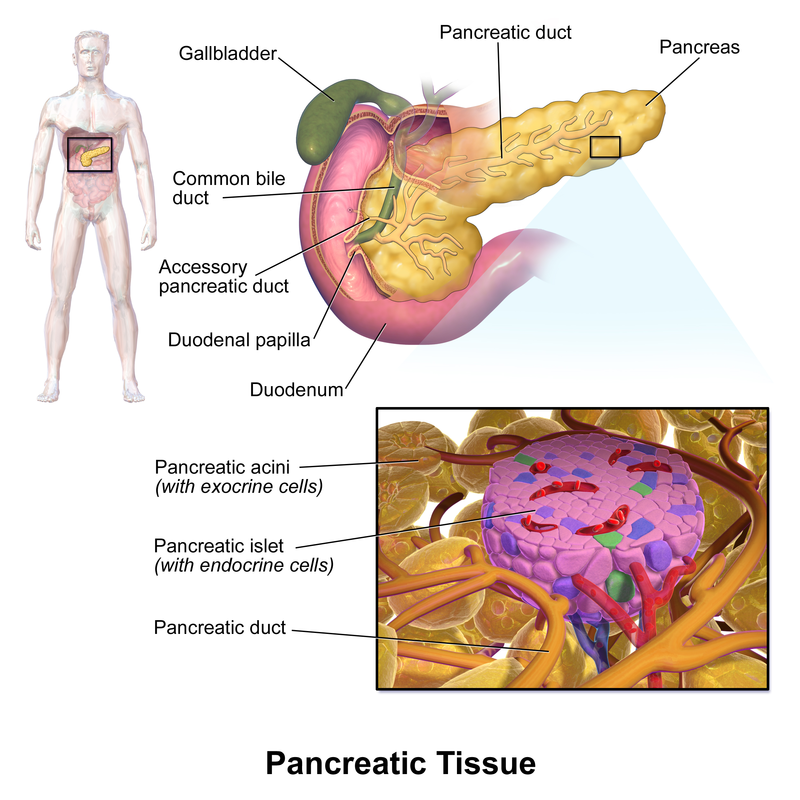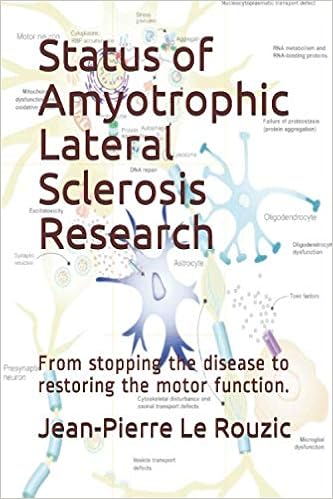Normal control of insulin and glucagon secretion by pancreatic islets is essential for maintaining glycemic homeostasis and it becomes defective for all forms of diabetes mellitus. There are poorly understood relationships between ALS and diabetes, just as between ALS and cancer.
We have known for a long time that about half of patients with ALS are insulin-resistant. This is also the case in other neuro-degenerative diseases such as Alzheimer's or Kennedy's disease. A recent article involves a neurotransmitter in the regulation of insulin.
The role of the inhibitory neurotransmitter GABA (γ-aminobutyric acid) in controlling the secretion of pancreatic islet cells has been known for a long time. GABA is released into pancreatic β cells by both synaptic-type microvesicles and large, dense central vesicles under glucose control, and the secreted amino acid subsequently blocks the release of glucagon by α4 cells.
 Source: Blausen.com staff (2014). "Medical gallery
Source: Blausen.com staff (2014). "Medical gallery
By acting as an autocrine messenger and binding to its receptors on β-cells, GABA can also curb insulin secretion. However it was not understood how the neurotransmitter could enter or leave the cell through the plasma membrane. Menegaz and his collaborators show in their article, that GABA is mainly present in human islets in the cytosol of β and δ cells, but not α cells. In addition, the authors found a decrease in GABA levels in samples of patients with type 1 or type 2 diabetes, potentially contributing to the exaggerated release of glucagon observed in these diseases. While this was not reported in this study, patients with ALS have significantly lower levels of GABA in the motor cortex than healthy people.
An important aspect of the new study is the identification of probable molecular mediators of GABA uptake and release by β-cells. By searching published databases of known proteins carrying GABA, the authors showed that TauT was both detectably expressed and localized to the plasma membrane in human β cells. Another carrier, Slc LAT2 family member, has also been involved as a carrier of a GABA mimetic.
The authors then explored the potential role of intraball GABA in the control of hormone secretion, showing that a decrease in β-cell synthesis of GABA increases insulin secretion. In contrast, exogenously added GABA decreases insulin secretion in glucose-stimulated β cells.
Transiently, the work suggests a new therapeutic potential for the treatment of GABA in diabetes. In type 2 diabetes, agonists (or inhibitors of GABA metabolism) can modulate insulin secretion. However, in type 1 diabetes, in which β cells have been destroyed, GABA antagonists may stimulate glucagon secretion and improve the risk of life-threatening hypoglycaemia.

